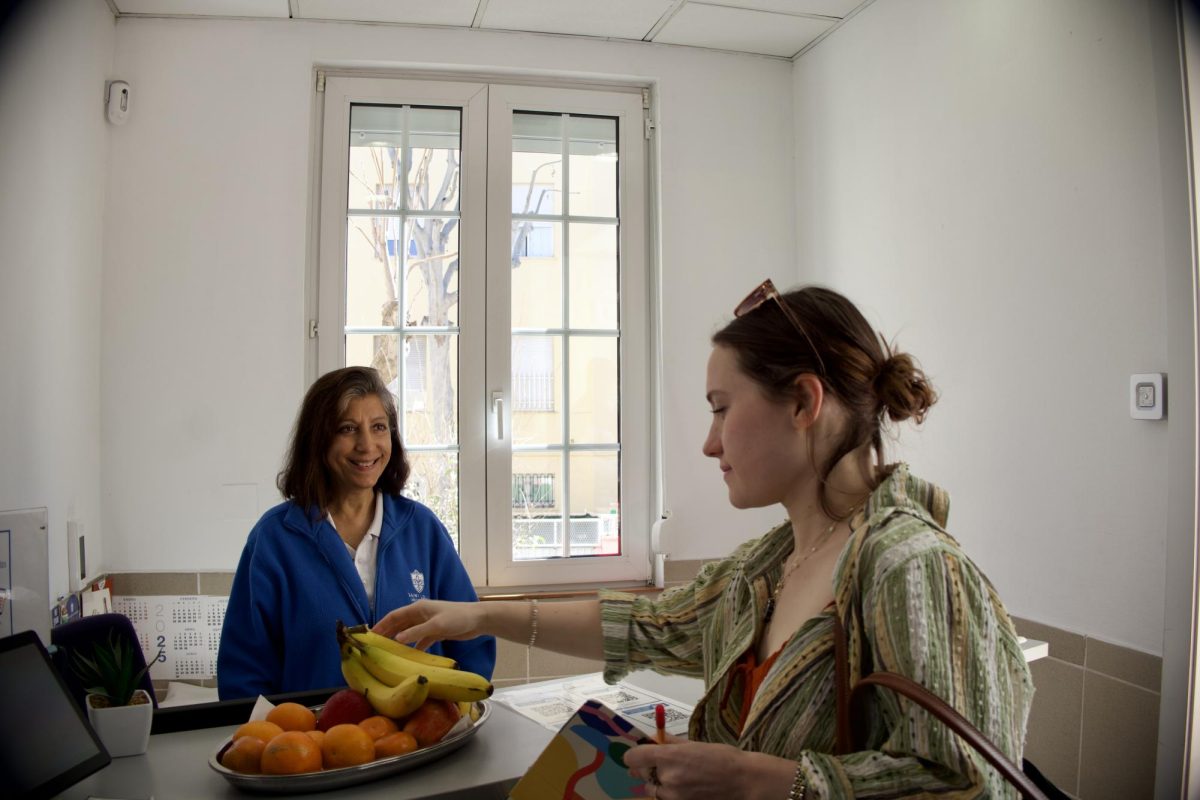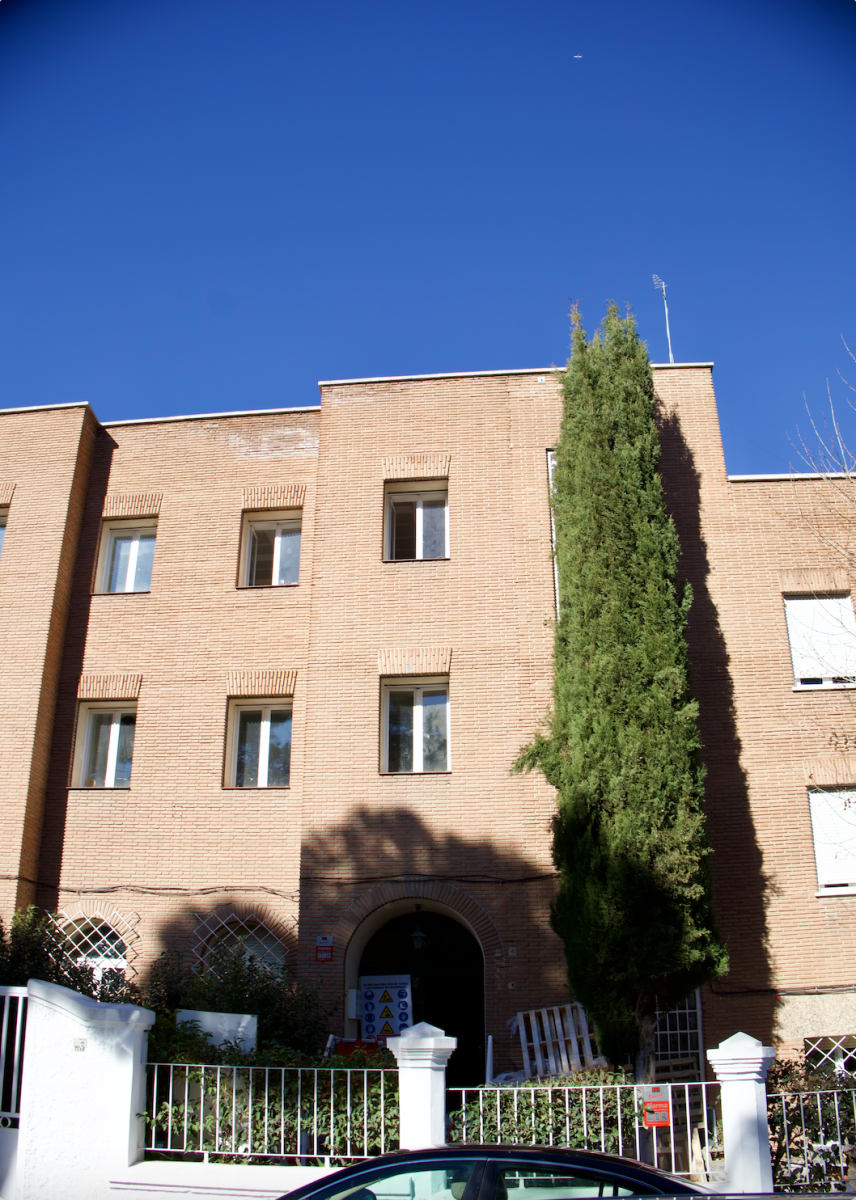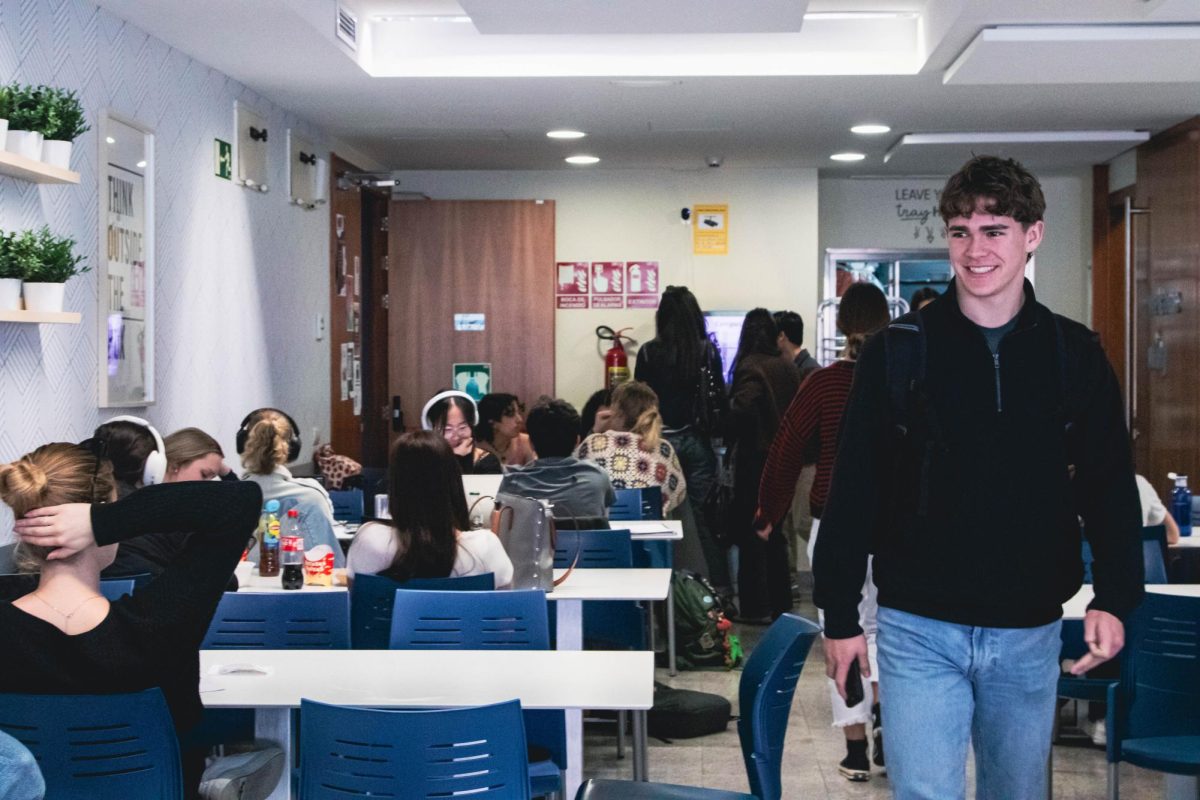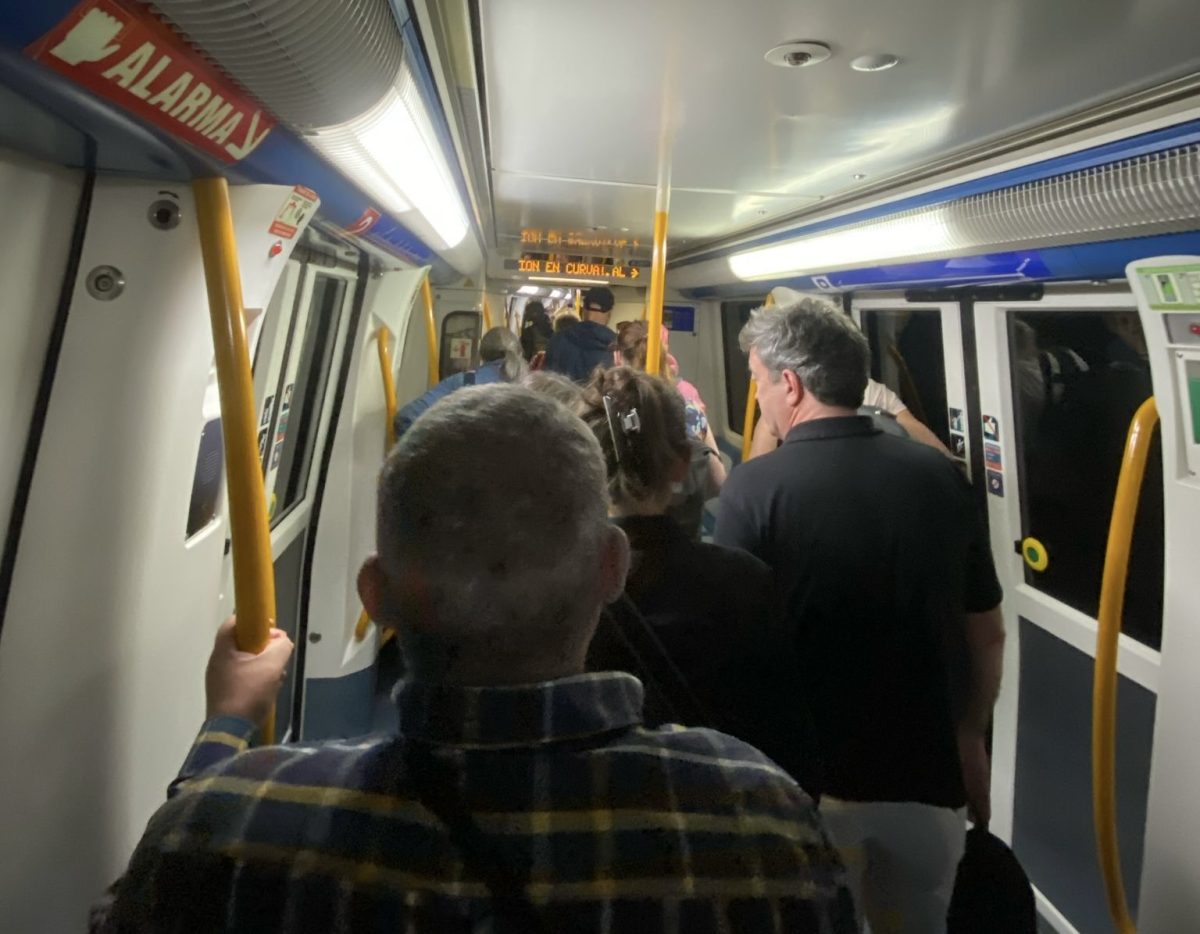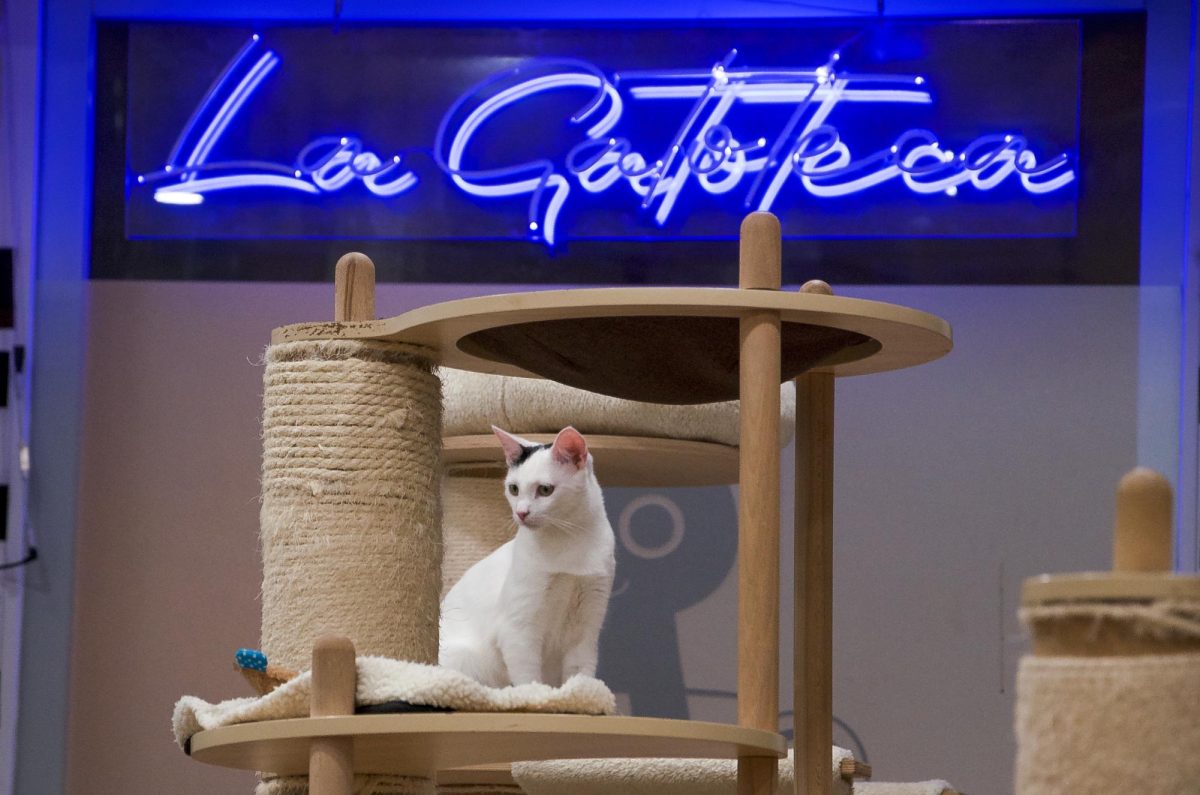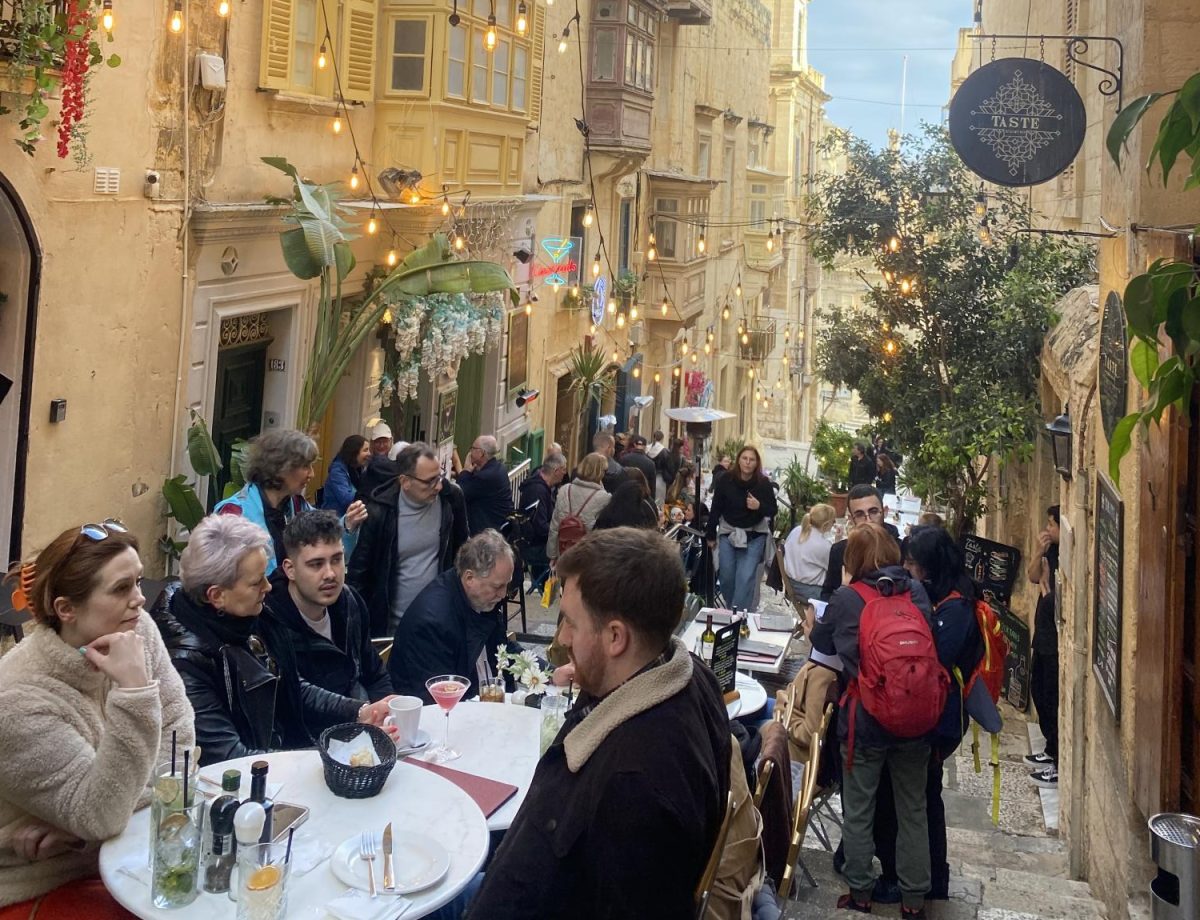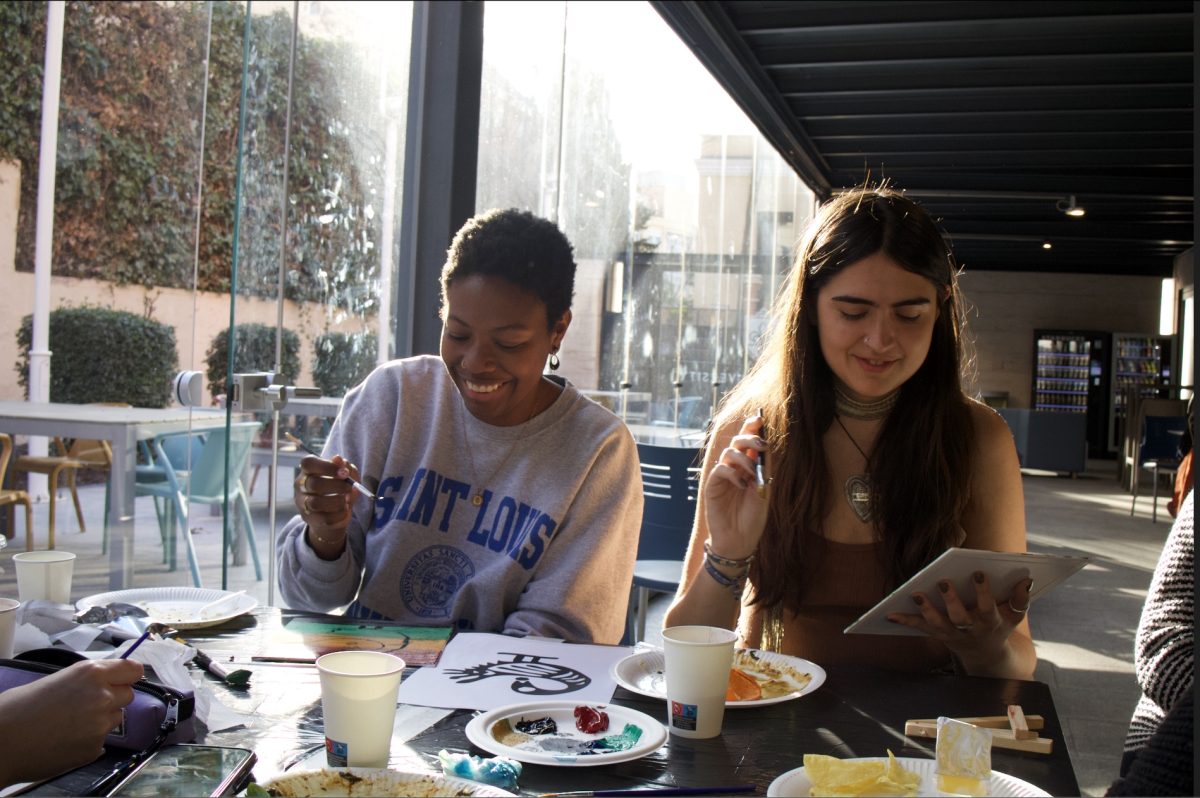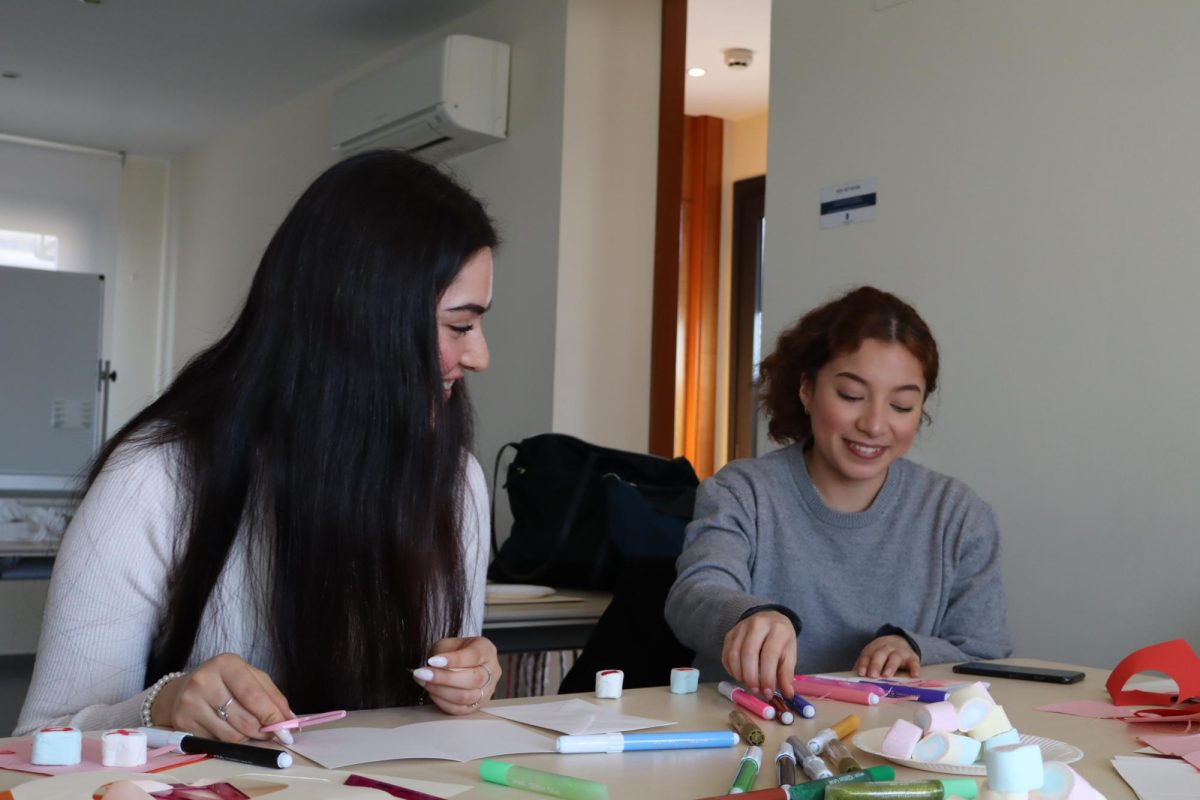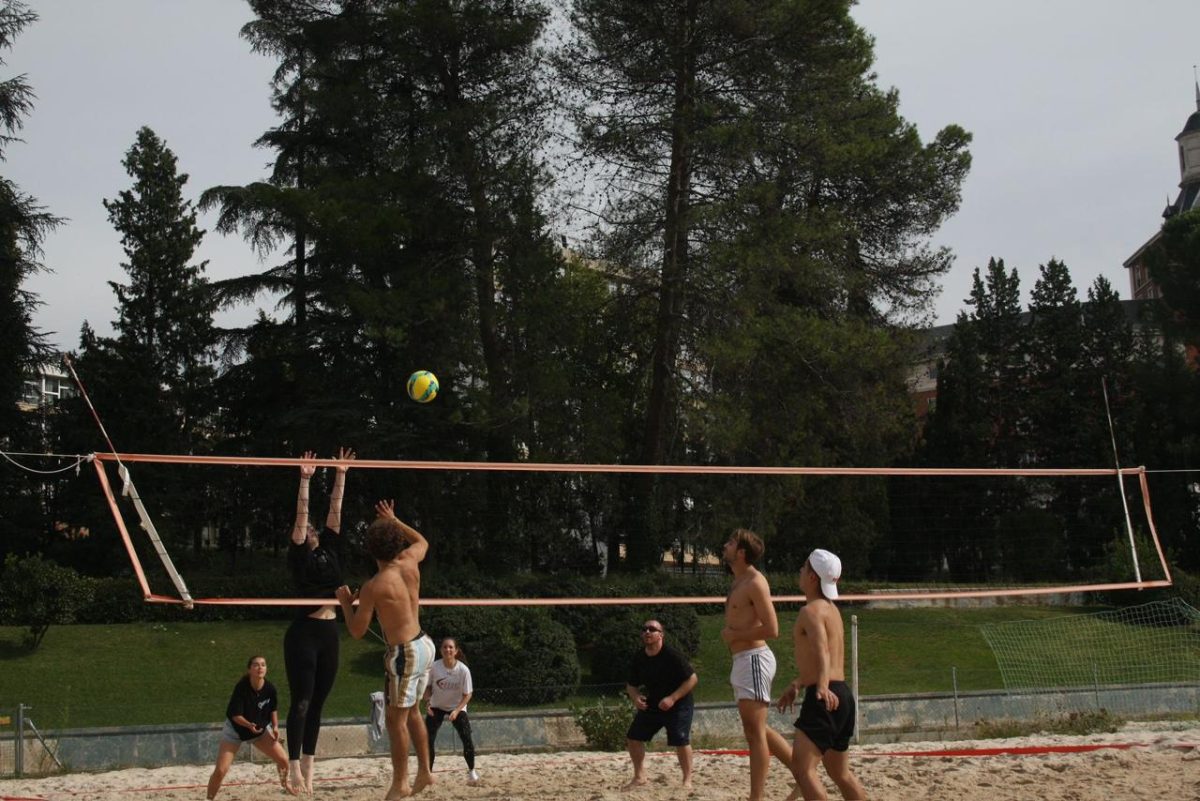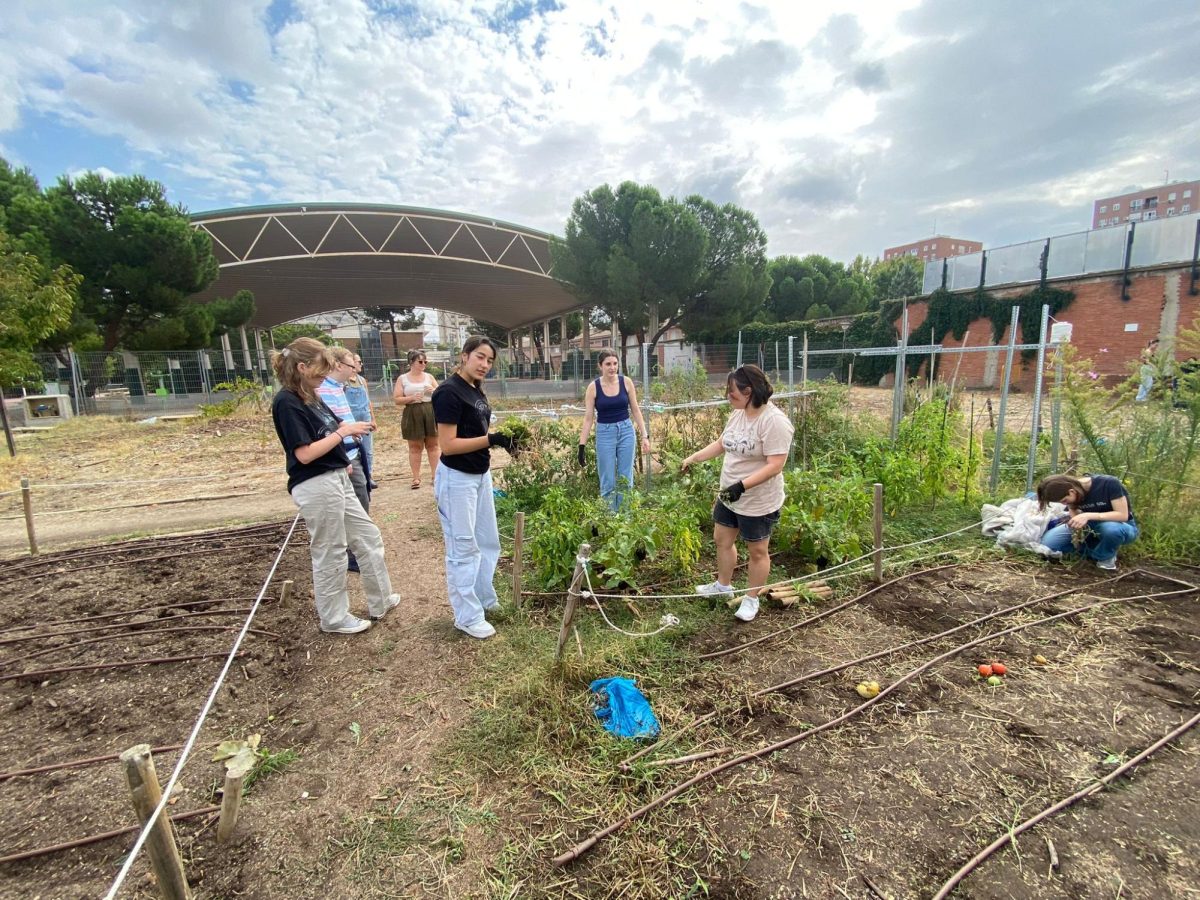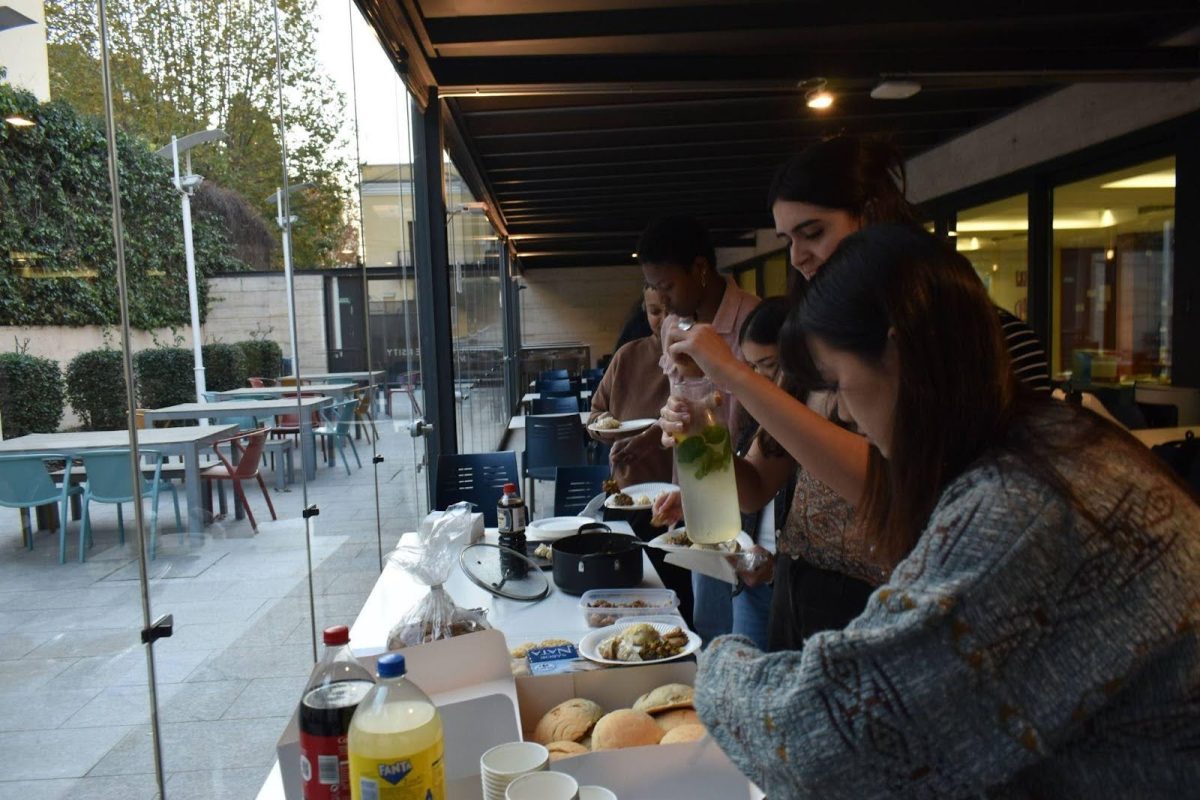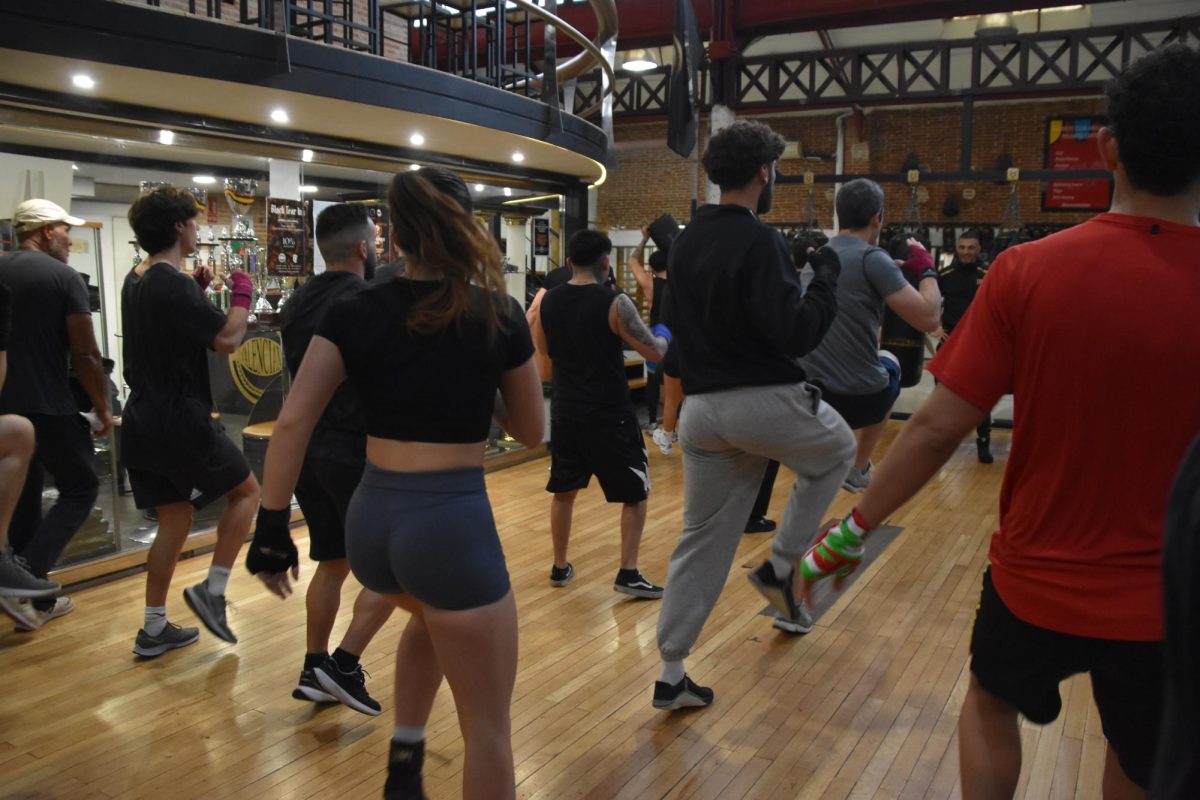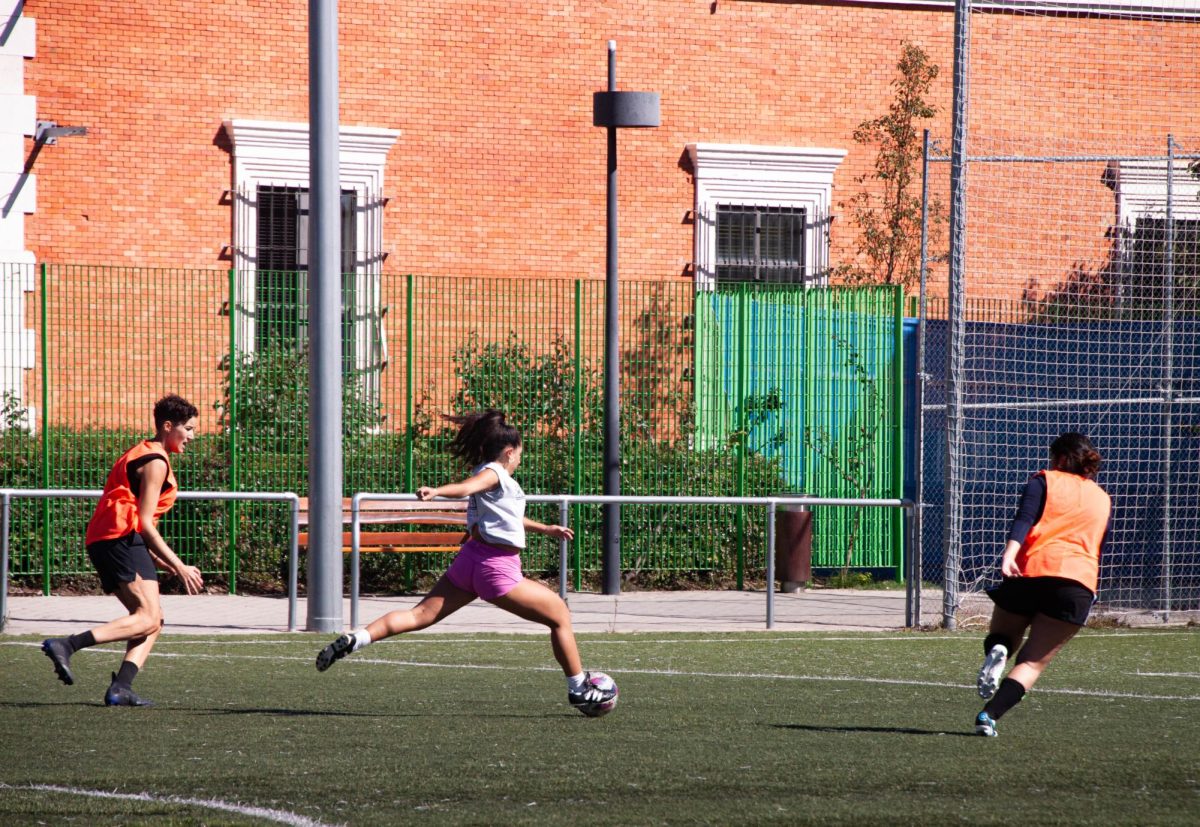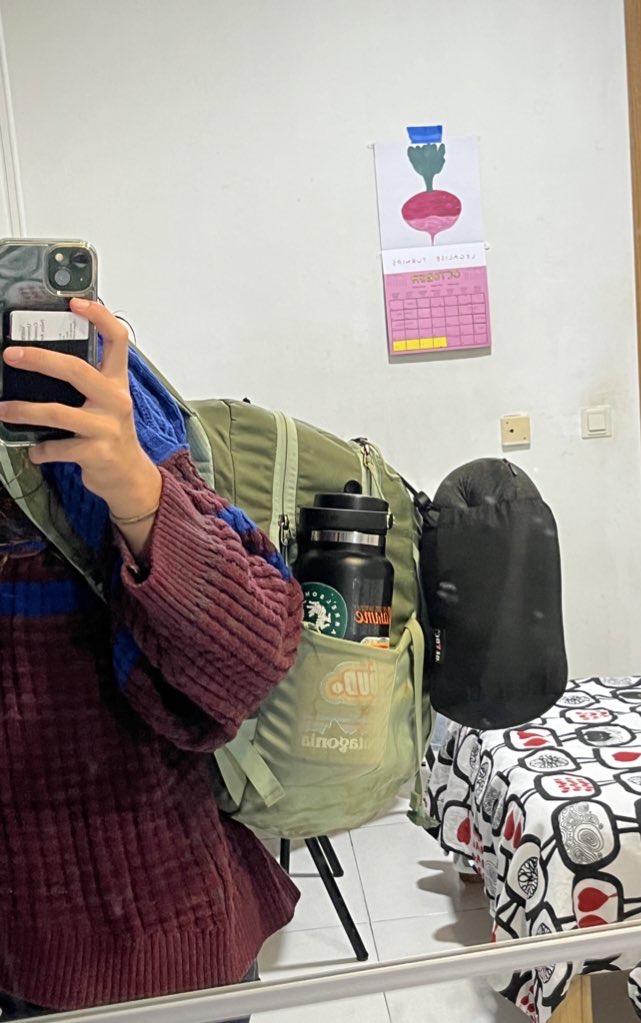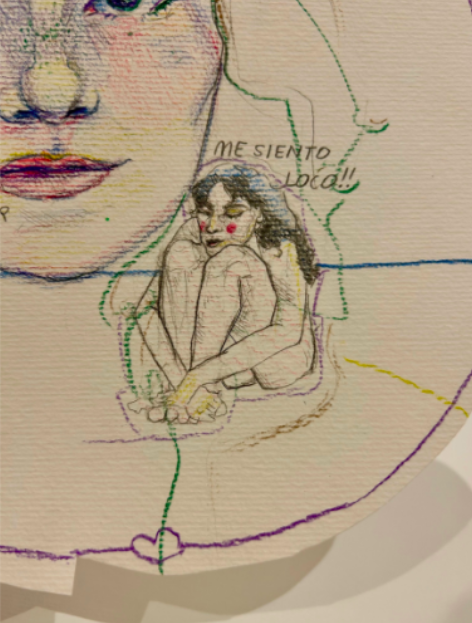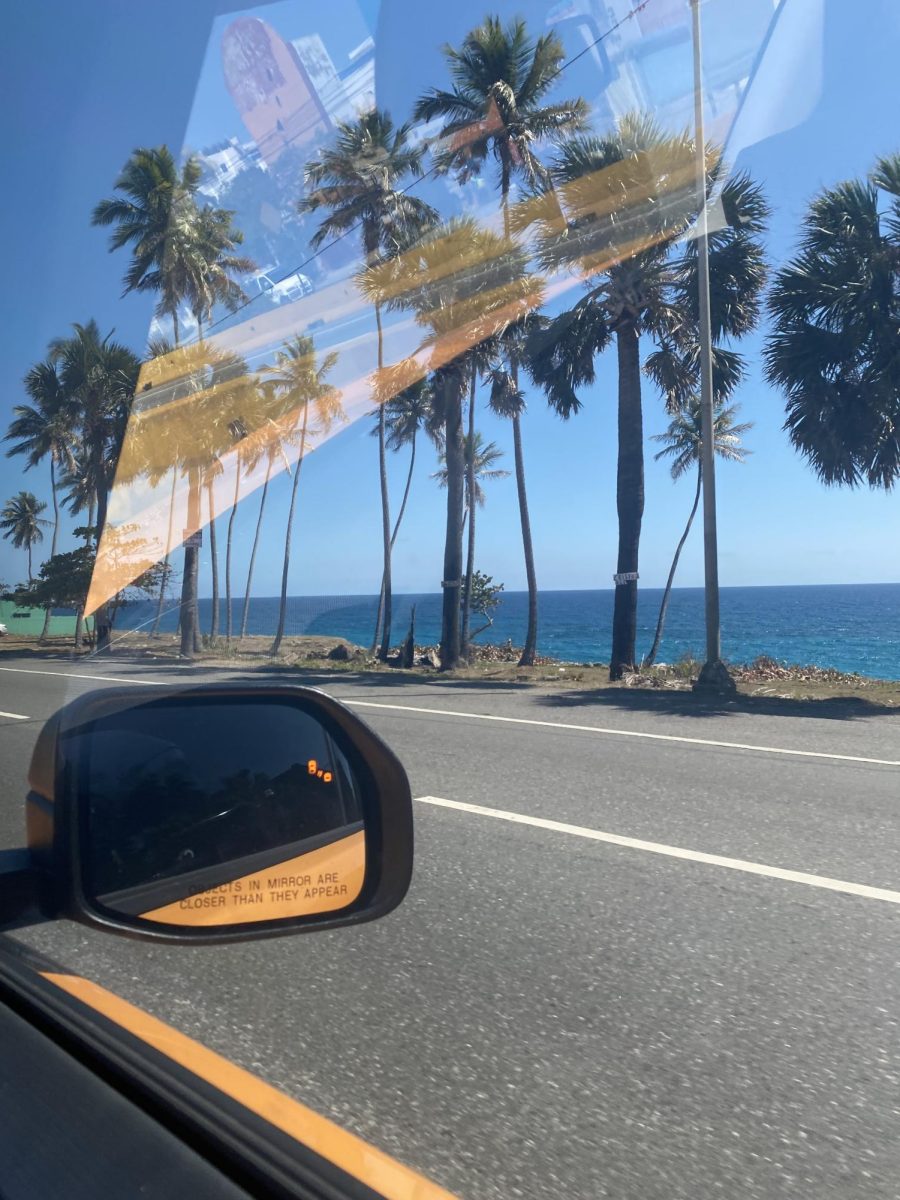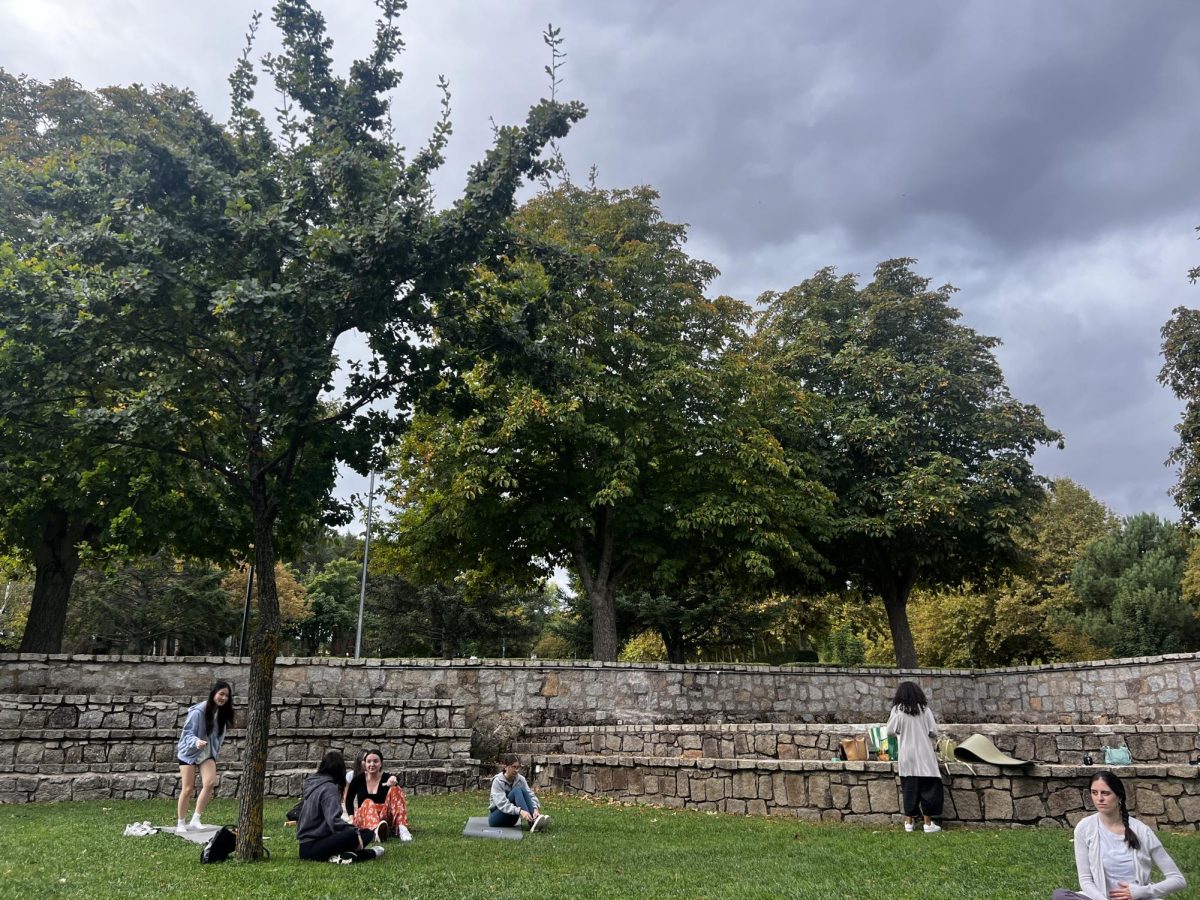The first time I took the bus in Madrid I nearly killed a child. Not on purpose, obviously. I had moved from the Dominican Republic to the Spanish capital two weeks prior for college, enthusiastic to experience adulthood and everything I’d heard about the first world. My first adult mission: learning how to use public transportation.
I stepped into the bright blue bus and greeted the driver with a big smile. He stared back, dead-faced. Undeterred, I paid for the ride and found a place between a yellow tube and a woman holding a stroller, where a small curly-haired toddler slept peacefully. I gripped the bar beside me with both hands until my knuckles turned white and bent my knees a little bit. I was ready for take-off.
The bus advanced and I only slightly swayed. I’m good at this, I thought. All I had to do now was wait for my stop. I looked up at a screen, where the names of the upcoming stops were displayed next to a slideshow of utterly outrageous announcements and advertisements. I cocked my head as they passed, more confused by the second— a video ad for the Spanish production of The Lion King was followed by a series of tips to avoid foot fungus, and then by a short biography of Spanish comedian Leo Harlem. Amused, I let go of the bar and reached for my phone in my purse, to send my mom a picture. She would be proud that I had taken the bus by myself and been calm enough to laugh at something.
Right then, the driver took a sharp turn and, with only one hand on the tube to keep me grounded, I immediately lost my balance, crashing right into the woman beside me. She lost her grip on her stroller, which started slowly but surely rolling away from her and toddler-first into the front of the bus. I gasped and clenched my eyes. When I didn’t hear a crash, I opened them slowly, bearing myself for the sort of catastrophic scene that would surely get me deported. Instead, the young mother was smiling, slightly out of breath, pressing one hand to her chest and clutching the steering bar of the stroller in the other. The child was still asleep.
I apologized profusely and she waved me off. “It happens to all of us,” she said.
I didn’t see anyone else flopping around and knocking children over, but I nodded and smiled.
Once the commotion was over, I looked back up at the screen. I had missed my stop.
The bus shouldn’t have been so hard for me to manage. While that first experience made it abundantly clear to me (and everyone who witnessed it, I bet) that my naive self was not nearly civilized enough to manage the complex public transportation system of a European capital, I had years of experience getting near-concussions on moving vehicles. Once, when I was 12, a lady backed up into my mom’s car in the middle of an intersection because her rear-view mirror was broken. Another time I was 16 and in the back seat of my friend’s car, and a policeman directing traffic signaled for two lanes to go at once– we ended up swerving halfway into the National Botanical Gardens. There’s a reason why Dominicans frequently compare our streets to the jungle; they are perhaps humankind’s closest imitation of literal wilderness.
To say that our public transportation system is functional would be generous. It exists, sure. It also lacks doors and seatbelts, in most cases. While I was growing up, we were privileged enough for my parents to be either overly paranoid or just the right amount of careful, depending on who you ask. I was spared from dysfunctional, government-neglected transport. For the entirety of my childhood and teenage-hood, I sat in the back seat of my dad’s air-conditioned yellow Land Cruiser and, after I turned 14, Ubers, gazing at third-world traffic jams through tinted windows like a ditzy, overzealous, under-cultured tourist in a safari.
I watched windowless, rusted buses cut traffic lanes and halt halfway into the sidewalk, where pedestrians gathered by the dozen, waiting for a spot in a vehicle that was already filled to the brim. These buses are known as “voladoras” (flyers) because when people don’t fit in them, they hang on to the frames of the missing doors and ride with just one foot inside, as if on a scooter. They are weighed down by the overflow, and motorcycles, carrying a minimum of three passengers each, usually speed past them impatiently.
To get to places the bus route doesn’t reach (which, to be fair, is most places) people also take “carritos públicos” (little public cars)— these, really, should just be called “IRL clown cars.” The more people you can drive somewhere at once, the cheaper it is for everyone involved (I’ve heard that prices range around 50 pesos, which is less than a dollar), so passengers pack into beaten-up Sonatas like sardines. Once, while waiting at a stoplight, I counted 21 heads in a carrito stopped next to us. As it turns out, it’s not that hard to bend the laws of physics when you have no other choice.
When I turned 18, two months before I moved to Madrid for school, my mom decided that I needed to learn how to drive. I wouldn’t ever need to drive while living in Spain, but at some point I would come back home, and I couldn’t depend on my friends and family to take me places forever. I needed to set myself up for at least some sort of independence.
I think she also might’ve needed me to leave knowing that an adult life in The Dominican Republic was possible. God forbid I “get a light-eyed Spanish novio” and stay in Europe for the rest of my life.
I wasn’t entirely opposed to the idea of being able to drive. I was, however, genuinely concerned about the safety hazard that me being in control of a car might pose to society. I knew I wouldn’t be the “pleasure to have in class” in driving lessons that I was in my 12th grade literature class. Just the week prior, I had tried to give my friend directions to drop me off at home after a party. We had somehow ended up driving along the pier, which I lived 40 minutes away from.
Mom knew it would take someone special to counteract my directional and coordinational incompetence, so she hired the most competent person in the world to give me driving lessons. The most competent person in the world was Miguelito.
Miguelito was my aunt’s messenger when I was little. He was also a truck driver and the owner of a plastic distribution business. When he got to my house for our first lesson, I handed him the keys to Mom’s car, assuming he would take it out of its parking spot. He tossed them right back to me, walked to a corner of the parking garage and leaned against the wall with crossed arms.
“I’ll wait for you right here,” he said.
There’s a reason I’m an English major. I can’t be trusted with any kind of machinery. That first class, it took me a full 10 minutes to figure out where to insert the keys. Once I started the car, I realized keys were going to be the least of my concerns. From the passenger seat, telling me where to turn and which buttons to press for the windshields once it started pouring, Miguelito guided me through dirt roads littered with chickens and stray dogs, slippery highways by the sea, and all the most unkempt, barely-asphalted barrios of Santo Domingo. He said that once I wasn’t scared of the scariest places, I would be able to drive anywhere.
Every time a car swerved past me he would chuckle, then shrug and say: “you’re too slow, they’re all beating you.”
He would yell at me to pull over every time he saw someone he knew on the sidewalk (which was often) and have lengthy conversations with them about how good I was getting at speeding.
We had daily lessons for three weeks. On the last one, the day before my driving test, he turned towards me and told me to listen closely, pointing at his ear.
“When you get there tomorrow, you look for the guy with the blue hat at the entrance and tell him that Miguelito sent you. Then, you slide him a thousand,” he said, wagging his finger at me instructionally. “They’ll make you sit in a waiting room for a couple of minutes, then it’ll be done.”
Lucky for my moral compass, my character traits are not limited to being coordinately-challenged, I also happen to be insufferably stubborn. I had certainly not spent three weeks on what felt like the brink of death just to pay off some man for a grade.
The morning of the test, Mom gave me cash before I left the house, just in case. It stayed in my purse untouched.
I went in confident, and, like in most things I do, somehow got by solely thanks to reading comprehension skills. In the practical test, where I was actually driving a car, I ran two stoplights and forgot to turn on the directional lights. Thankfully, I had read the driver’s manual twice the night before. I passed the written section of the test with a perfect score.
When I got home with my license in hand, Mom got teary-eyed. Then, inspecting the card closely, she told me I should’ve used the 1,000 peso bill she had given me to bribe someone into changing my height on the card to at least 5 ‘4.
I knew she was relieved because she was sending me off into the world with some sort of Dominican street smarts. Dominican street smarts, however, don’t get you very far in civilized, fast-paced Spain, as I would soon find out. I wish I could say that my ability to understand basic navigation around the city got better after that embarrassing first bus ride, but it didn’t, at least not right away.
A year after I moved my mom visited me in Madrid, and we decided to take the bus down to Gran Vía. We sat on the bus stop at Argüelles and patiently waited for bus number 74. When it finally approached us, we just stood up and waited along the curb. Somehow, I still
hadn’t caught the memo that you’re supposed to wave down the buses to get them to stop for you. The 74 zoomed right past us and down the street. We were appalled.
“How dare you?” Mom yelled after the vehicle, then turned towards me. “Why would he just ignore us? What’s wrong with him?”
I was equally offended, mouth hanging open in shock. The next 74 wasn’t coming for another 15 minutes. I shrugged at my mom’s question and stuck my arm out into the street, giving the long-lost bus the middle finger until it faded out of sight.
A very old lady holding a cane stared at us from her seat at the stop, eyebrows raised halfway up her wrinkled forehead and lips curled downward in distaste. If she didn’t already have negative preconceptions about the incivility and loudness of Latin American immigrants, she definitely did after that.
The bus never got easier, but it did become normal.
More than two years after moving, I was standing at a stop and a tourist who couldn’t speak Spanish asked me for directions. I gave them to him, then stood in shock for a couple of minutes after he left. I looked down at the clothes I was wearing, wondering what was making me look like I knew where I was going.
It kept happening, so I started keeping score. Eight people have asked me for directions in the past six months. It seems that I am, after all, civilized enough to partake in the complex transportation system of a first-world capital. Still, I keep my Dominican license in my wallet, and show it to bartenders when they ask me for proof that I’m an adult.

